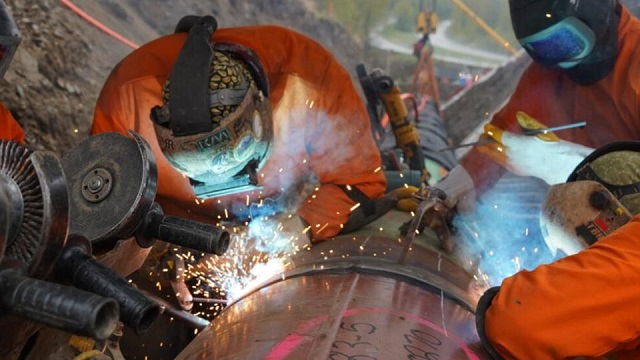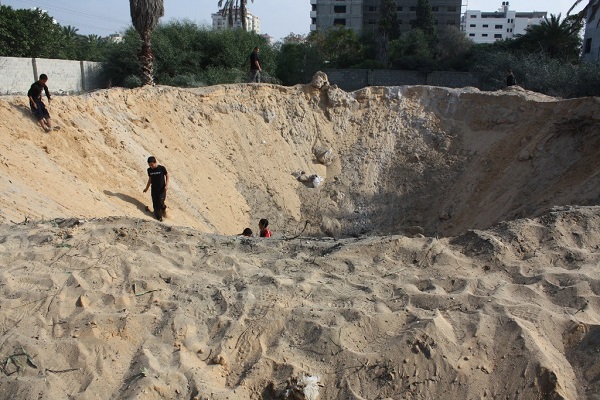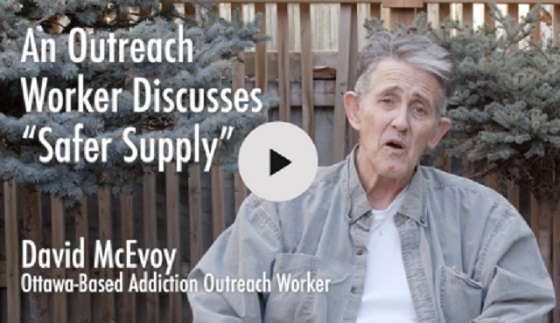Alberta
Meet Alberta’s first Anti-Racism Advisory Council

Meet Alberta’s first Anti-Racism Advisory Council
February 25, 2019 – from Government of Alberta:
Alberta’s first council dedicated to combating racism will bring expertise and experience to assist in government’s commitment to end racism.
The council includes 24 members plus Education Minister David Eggen, who is responsible for government’s anti-racism initiative. The council will advise government as it develops strategies to end racism and discrimination in Alberta. This council is the first of its kind in the province.
More than 300 Albertans applied to participate on the council. Members were selected for their demonstrated leadership abilities and experience in advocating for diverse communities. The council includes people from various faiths and other diversities, and members represent regions across the province.
“Establishing the Anti-Racism Advisory Council is an important part of our government’s efforts in fighting racism in this province. Each of the council’s new members brings a wealth of knowledge and lived experience to our government’s anti-racism work. I have a great deal of confidence in this new council and I look forward to working together to ensure all Albertans feel safe and respected. We will work together towards a common goal of ending racism in our province. We owe this to our future generations.”
Minister Eggen will have two co-chairs on the Anti-Racism Advisory Council: Heather Campbell and Lucenia Ortiz.
“I am extremely proud to share the leadership of the Alberta Anti-Racism Advisory Council (AARAC). Thank you, Minister Eggen, for entrusting me with this fundamental element of the government’s plan to address racism. All Albertans will benefit from AARAC’s inspired work developing community-based solutions to address racism and remove barriers, allowing everyone to thrive.”
“I am honoured to be selected as one of the co-chairs of the Alberta Anti-Racism Advisory Council. I look forward to working with the members of the Advisory Council who share a commitment to tackle racism and make Alberta a more welcoming and inclusive province.”
Council member biographies
Co-Chairs
Heather A. Campbell, Calgary
Campbell is a practising licensed professional engineer and procurement manager with the Alberta Electric System Operator. Campbell is a member of the advisory council for Western Engineering, sits as vice-president of the board of directors of Downstage Theatre and is a board member of Arts Commons.
Lucenia Ortiz, Edmonton
Ortiz is a planner with the City of Edmonton’s Citizen Services. Ortiz is a founding member of the Edmonton Multicultural Coalition and a member of the Multicultural Health Brokers Co-op.
Council Members
Shan Ali, Calgary
Ali is the owner and publisher of Express Media Network Ltd. where he launched Weekly Canadian Express, one of Western Canada’s largest South Asian newspapers, covering Calgary, Edmonton and Fort McMurray. Ali also publishes South Asian Xpress Magazine and hosts the Sangeet Studio Radio show. Ali is a board member for the Asian Heritage Foundation and the South Asian Canadian Seniors Society.
Sonia Aujla-Bhullar, Calgary
Aujla-Bhullar is a public school teacher in Calgary and a PhD candidate in the Werklund School of Education at the University of Calgary. Her current work centres on exploring multi-ethnic and multicultural community engagement within schools as part of present-day inclusive education measures. Her work with community organizations includes local and national initiatives within the Sikh community and she is a member of the South Asian Police Advisory Committee for the Calgary Police Service.
Melodie Bastien, Brocket
Bastien is the NorthStar parent connector at Opokaasin Early Intervention Society in Lethbridge. She provides one-on-one support, wraparound support services and cultural programming for families. Bastien participates in the Blackfoot Traditional way of life within the Blackfoot Confederacy.
Iman Bukhari, Calgary
Bukhari is a multimedia professional working as a planner in channel management for the City of Calgary. Bukhari is also an adjunct professor at Columbia College where she teaches human rights and diversity courses. She is the founder and CEO of the Canadian Cultural Mosaic Foundation.
Yic Camara, Edmonton
Camara is an integration and community liaison agent with Centre d’acceuil et d’etablissement of Northern Alberta, establishing and maintaining contact with French multicultural communities in Edmonton. Camara has been actively involved in the Guinean community and sits on the board of directors for Institut Guy-Lacombe de la Famille (Parent Link Centre) in Edmonton.
Nadine Eagle Child, Lethbridge
Eagle Child is a student counselor at Red Crow Community College. She is an executive member of the Apiistamiiks – White Buffalo Trail Blazers, a grassroots group fighting against racism, hate and discrimination in Southern Alberta. She has served as the co-chair of the Employment and Education subcommittee with the City of Lethbridge’s Interagency Group, and chair of the Student Success and Retention working group under the Iniskim Education Committee at the University of Lethbridge.
Michael Embaie, Calgary
Embaie is a practising, licensed immigration consultant and has volunteered with not-for-profit local, provincial, national and international organizations for over 25 years, including as president and board member of the Southern Alberta Heritage Language Association and as founding member and president of the African Community Association of Calgary.
Sithara Fernando, Fort McMurray
Fernando is a community-based environmental monitoring instructor at Keyano College. Fernando formerly served as the secretary and chair of the governance committee for the Pride Centre of Edmonton and the vice-chair of Some Other Solutions crisis prevention centre. Fernando is a registered professional forester and a mental health advocate.
Nahla Gomaa, Edmonton
Gomaa is an associate clinical professor, researcher and educator at the faculty of medicine and dentistry at the University of Alberta. Gomaa serves as the Interfaith Portfolio chair in the Edmonton Council of Muslim Communities, contributes to the city’s commemoration of Remembrance Day and organizes Islamic history month at city hall.
Adil Zaki Hasan, Edmonton
Hasan is the vice-president and chief operations officer at Hasco Development Corporation. Hasan is active in the community including as vice-president of civic engagement for the Alberta Muslim Public Affairs Council and board member for Al Mustafa Academy and Humanitarian Society.
Zahro Hassan, Edmonton
Hassan is a doctoral student at the University of Alberta. She has extensive community and youth development experience within several multiracial/multicultural immigrant communities in Toronto, Ottawa and Edmonton. Hassan is a board director at the Edmonton Social Planning Council and a former support staff for the Toronto District School Board Task Force on the Success of Students of Somali Descent.
Abdulghani Haymour, Edmonton
Haymour is a business manager who works closely with the Canadian Arab Friendship Association (CAFA) to assist community members in areas such as filing government documents, accessing government resources and facilitating events. Haymour attends CAFA board meetings as a guest member.
Bernadette Iahtail, Edmonton
Iahtail is co-founder and executive director of Creating Hope Society, a society founded for the survivors of the Sixties and Seventies Scoop of Indigenous children in care. Iahtail is an active member of the Edmonton Coalition for Human Rights, Aboriginal coalitions, the Edmonton Aboriginal Leadership Team and Stony Plain Wapekin Leadership Team.
Adebayo Katiiti. Edmonton
Katiiti is the founder and president of RARICAnow, an organization for all LGBTQ refugees in Canada. Katiiti advocates for the rights of refugees by creating awareness of their existence in Canada and ensuring that newcomers and refugees learn Canadian culture and get support in navigating the refugee and settlement process.
Feisal Kirumira, Edmonton
Kirumira is special advisor to the dean of international students at Augustana campus, University of Alberta. Kirumira chairs the International Student Engagement Committee and participates on the Bridging Program Advisory Committee and the International Week planning committee.
Omar Najmeddine, Edmonton
Najmeddine is the executive director of the Al Rashid Group and leads all corporate functions for the organization. He is a board member with the American University of Beirut Alumni Foundation and a former board member with the Red Cross, and Community Interest Companies Association.
Roy Pogorzelski, Lethbridge
Pogorzelski is the director of Indigenous Student Affairs, an instructor for the Dhillon School of Business at the University of Lethbridge and owner and operator of three business. Pogorzelski is a member of the U of L senate, board member with the YMCA of Lethbridge, president of the Rotary Club of Lethbridge Mosaic and board member of the chamber of commerce. Pogorzelski is also an appointed director for the Canadian Race Relations Foundation (CRRF) and sits as the CRRF advisor to the National Canadian Coalition of Municipalities Against Racism and Discrimination committee.
Tasneem Rahim, Calgary
Rahim is the director of fund development and alumni engagement at Bow Valley College. Rahim serves as a member and manages community relations on the Aga Khan Council for the Prairies, and is the communications member of the Management Committee for Generations: Multi-Generational Housing and Community Centre Campus Calgary.
Judy Shapiro, Calgary
Shapiro is the former associate executive director of the Calgary Jewish Federation, overseeing all of its programming areas. She is a member of the Calgary Interfaith Council and a regular volunteer at the Calgary Interfaith Food Bank. Shapiro is a past board member for the Calgary Council of Christians and Jews and the Committee on Race Relations and Cross-Cultural Understanding.
Pavit Sidhu, Calgary
Sidhu is the WiseGuyz program facilitator and sexual health educator at the Centre for Sexuality in Calgary. Sidhu served as a member of the University of Calgary senate in 2013 and as an appointee of the students’ union representing the undergraduate student body.
Delainah Velichka, Worsley
Velichka is a school board trustee with Peace River School Division No. 10. Velichka’s portfolios include Administrators’ Association, Teacher Board Advisory Committee, Transportation Liaison Committee, Audit Committee, Alberta School Boards Association Second Language Task Force, Clear Hills Trades Training, Council of School Councils Liaison Committee, Discipline Committee and the First Nations, Métis & Inuit Liaison Committee.
Teresa Woo-Paw, Calgary
Woo-Paw is owner and principle of Teresa Woo-Paw & Associates Ltd. Woo-Paw is a member of the board of directors for the Calgary Arts Foundation, board president of Action Chinese Canadians Together Foundation and is a founding member and current co-chair of the Asian Heritage Foundation.
Alberta
Canadian Christian chiropractor fights ‘illegal’ $65,000 fine for refusing to wear mask

From LifeSiteNews
Dr. Curtis Wall went against the College of Chiropractors of Alberta’s COVID mask mandate in 2020 and the organization has been pursuing disciplinary action ever since.
The legal team for Dr. Curtis Wall, a Canadian chiropractor who was recently fined $65,000 by his medical college for not wearing a mask in 2020 despite the fact public health orders last year were nullified by a court, has vowed to fight the “illegal” fine, saying that Wall was targeted because he is a “Christian man of integrity and principle.”
“Dr. Wall should not pay any fines or costs when the public health orders he was charged with not following have been declared void by the courts,” said Wall’s legal team, Liberty Coalition Canada (LCC), in a press release.
“He is a Christian man of integrity and principle — attributes that make him a target for government overreach in the era of COVID.”
Wall was practicing in Calgary in 2020 when the COVID crisis was gearing up, went against Alberta’s public health orders and chose not to wear a mask during patient visits. Many of his patients also decided to not wear masks during their visits, which quickly drew the ire of College of Chiropractors of Alberta, which had mandated that all chiropractors wear masks.
Wall, who has been seeing patients for the last 25 years with a pristine record, was then targeted by the College, which tried to strip him of his license to practice. The College was unable to strip Wall of his license and he continued to practice, sans mask in 2021 and 2022.
In 2021, the College had brought against Wall, as per the LCC, “a long list of charges of unprofessional conduct against Dr. Wall, most of which related to Dr. Wall not wearing a mask while treating patients and permitting his patients to not wear a mask.”
Wall was then brought before a disciplinary hearing Tribunal to mediate his case, which went well into 2022, and had placed a publication ban on all “identities of all witnesses,” including Wall’s.
James Kitchen, Wall’s lawyer from the LCC, was successful in getting the publication ban lifted, as the LCC noted due to the College “wishing to avoid likely defeat before the courts” regarding keeping the ban in place.
Fined chiropractor says college did not recognize his ‘Christian convictions’
In 2023, the Tribunal ruled against Wall entirely and in favor of the College.
The Tribunal’s decision noted the LCC is “riddled with errors of fact and law and is so poorly decided it is an embarrassment to the chiropractic profession.”
Wall spoke with LifeSiteNews and observed that while in his point of view he does not feel his fines and costs imposed on him by the college “are a direct result of my Christian faith,” he did note that the tribunal did “not recognize my honest Christian convictions as a valid reason for my not wearing a mask.”
“They put placed no merit in the argument that as a Christian I believe I am created in the image of God,” Wall said.
“My face is an expression of Him. Having man arbitrarily mandate that I cover my face is an affront to that expression and signifies that I am living in the fear of man, not by faith. So, in all, I don’t feel directly persecuted as a Christian, but certainly indirectly.”
Wall told LifeSiteNews that in his opinion the college could have “handled this issue much differently.”
“There must always be room for exceptions to a rule. I did present a doctor’s note to verify my inability to wear a mask. They did not place any weight on that note. They blamed me for ‘self-diagnosing’ my problem,” Wall said.
“Number one, I’m a doctor. I think eight years of schooling has given me some wisdom to diagnose my own signs and symptoms. Number two, if someone eats a peanut and their throat swells shut, can they not diagnose themselves and stay away from nuts? It’s not a problem to self-diagnose.”
Wall said that despite his legal team presenting four expert witnesses to demonstrate “the obvious inadequacy and lack of efficacy in mask-wearing, not to mention the harms as well,” the college “did not cite the record once in their verdict.”
He noted that “common sense, science and past and present studies overwhelmingly demonstrate” the lack of efficacy regarding mask-wearing.
The LCC noted that although both Kitchen and Wall hoped for an “unbiased decision from the tribunal,” they knew it was more “likely the tribunal members would lack the courage to oppose the government’s COVID narrative by accepting the scientific evidence masks are utterly ineffective at preventing the transmission of COVID and harmful to wearers.”
“Nonetheless, it is shocking the lengths the tribunal went to dismiss the evidence of Dr. Wall, three of his patients, and his four expert witnesses while blithely accepting all the evidence of the College.”
Wall’s charges laid despite a recent court ruling nullifying all Alberta COVID health orders
According to LCC, the charges brought against Wall show that the College of Chiropractors of Alberta has “ignored the law” relating to non-criminal COVID-era charges handed out in the province.
As reported by LifeSiteNews before, last year a judge from Alberta ruled that politicians violated the province’s health act by making decisions regarding COVID mandates without authorization. This ruling came from the Alberta’s Court of Kings Bench’s Ingram v. Alberta decision, which put into doubt all cases involving those facing non-criminal COVID-related charges in the province. In effect, the ruling struck down and nullified all health orders issued by Dr. Deena Hinshaw, Alberta’s former chief medical officer of health.
As a result, multiple people facing charges, such as Dr. Michal Princ, pizzeria owner Jesse Johnson, café owner Chris Scott, and Alberta pastors James Coates, Tim Stephens, and Artur Pawlowski who were jailed for keeping churches open under then-Premier Jason Kenney, have had COVID charges against them dropped due to the court ruling.
The Alberta’s Court of Kings Bench’s Ingram v. Alberta decision put into doubt all cases involving those facing non-criminal COVID-related charges in the province.
As a result of the court ruling, Alberta Crown Prosecutions Service (ACPS) said Albertans facing COVID-related charges will likely not be convicted but instead have their charges stayed.
However, last year, the College, and of important note after the Ingram ruling, ordered Wall to pay $65,000 in fines and costs “under threat of immediately losing his license to practice if he does not pay,” the LCC said.
Chiropractor’s lawyer to fight fine tooth and nail
According to the LCC, the College’s new complaints director said she will enforce the tribunal’s court-defying order and mandate Wall pay the $65,000.
Because of this, Kitchen submitted an application to the College “to prevent this injustice” against Wall, the LCC noted.
“The Application will be heard on June 21. It will be heard virtually and is open to public, although the College has erected a number of barriers to people attending its hearings. For one, people must register with the hearings director and must do so many days in advance,” he told LifeSiteNews.
“The Tribunal elected to ignore the Ingram decision despite issuing its decision over two weeks after Ingram was released by the Court.”
Kitchen noted that the Tribunal had a lawyer advising it who was being paid some $700 an hour. He told LifeSiteNews that “Tribunals can do whatever they want and often do.”
“Only if the affected person takes further legal action can they hold the Tribunals accountable. And even then, that’s very difficult because the first appeals are to the councils of the Colleges, which almost always rubber stamp whatever the Tribunals decide. Real accountability isn’t had until the impugned professional is able to reach the Court of Appeal, which of course takes years and an enormous amount of funding for lawyer fees,” Kitchen said.
Kitchen is working Wall’s case at discounted rates and noted that high legal costs in such cases dealing with tribunals, who can drag things on for years, to him appear to be a tactic the Colleges count on for “avoiding accountability.”
The LCC estimates the College, which is funded through payments from all chiropractors, paid some $600,000 in legal fees to fight Wall.
“LCC asks supporters to donate toward Dr. Wall’s case so he and Mr. Kitchen can hold the College of Chiropractors of Alberta accountable and bring an end to the unjust persecution of Dr. Curtis Wall. Liberty Coalition Canada is assisting Dr. Wall with his legal expenses through the Legal Defense Fund.”
Kenney quit after losing the confidence of his United Conservative Party (UCP) members for backtracking on his promise to not impose a COVID vaccine passport. Under Kenney, thousands of businesses, notably restaurants and small shops, were negatively impacted by severe COVID restrictions, mostly in 2020-21, that forced them to close their doors for a time. Many never reopened. At the same time, as in the rest of Canada, big box stores were allowed to operate unimpeded.
Under Kenney, thousands of nurses, doctors, healthcare and government workers lost their jobs for choosing to not get the jabs, leading Premier Danielle Smith to say – only minutes after being sworn in – that over the past year the “unvaccinated” were the “most discriminated against” people in her lifetime.
Recently, LifeSiteNews reported on how Alberta-based Rath & Company is in the process of putting together a class-action lawsuit against the Alberta government on behalf of many business owners in the province who faced massive losses or permanent closures from what it says were “illegal” COVID public health orders enacted by provincial officials.
Alberta
Game changer: Trans Mountain pipeline expansion complete and starting to flow Canada’s oil to the world

Workers complete the “golden weld” of the Trans Mountain pipeline expansion on April 11, 2024 in the Fraser Valley between Hope and Chilliwack, B.C. The project saw mechanical completion on April 30, 2024. Photo courtesy Trans Mountain Corporation
From the Canadian Energy Centre
By Will Gibson
‘We’re going to be moving into a market where buyers are going to be competing to buy Canadian oil’
It is a game changer for Canada that will have ripple effects around the world.
The Trans Mountain pipeline expansion is now complete. And for the first time, global customers can access large volumes of Canadian oil, with the benefits flowing to Canada’s economy and Indigenous communities.
“We’re going to be moving into a market where buyers are going to be competing to buy Canadian oil,” BMO Capital Markets director Randy Ollenberger said recently, adding this is expected to result in a better price for Canadian oil relative to other global benchmarks.
The long-awaited expansion nearly triples capacity on the Trans Mountain system from Edmonton to the West Coast to approximately 890,000 barrels per day. Customers for the first shipments include refiners in China, California and India, according to media reports.
Shippers include all six members of the Pathways Alliance, a group of companies representing 95 per cent of oil sands production that together plan to reduce emissions from operations by 22 megatonnes by 2030 on the way to net zero by 2050.
The first tanker shipment from Trans Mountain’s expanded Westridge Marine Terminal is expected later in May.
 Photo courtesy Trans Mountain Corporation
Photo courtesy Trans Mountain Corporation
The new capacity on the Trans Mountain system comes as demand for Canadian oil from markets outside the United States is on the rise.
According to the Canada Energy Regulator, exports to destinations beyond the U.S. have averaged a record 267,000 barrels per day so far this year, up from about 130,000 barrels per day in 2020 and 33,000 barrels per day in 2017.
“Oil demand globally continues to go up,” said Phil Skolnick, New York-based oil market analyst with Eight Capital.
“Both India and China are looking to add millions of barrels a day of refining capacity through 2030.”
In India, refining demand will increase mainly for so-called medium and heavy oil like what is produced in Canada, he said.
“That’s where TMX is the opportunity for Canada, because that’s the route to get to India.”
Led by India and China, oil demand in the Asia-Pacific region is projected to increase from 36 million barrels per day in 2022 to 52 million barrels per day in 2050, according to the U.S. Energy Information Administration.
More oil coming from Canada will shake up markets for similar world oil streams including from Russia, Ecuador, and Iraq, according to analysts with Rystad Energy and Argus Media.
Expanded exports are expected to improve pricing for Canadian heavy oil, which “have been depressed for many years” in part due to pipeline shortages, according to TD Economics.
 Photo courtesy Trans Mountain Corporation
Photo courtesy Trans Mountain Corporation
In recent years, the price for oil benchmark Western Canadian Select (WCS) has hovered between $18-$20 lower than West Texas Intermediate (WTI) “to reflect these hurdles,” analyst Marc Ercolao wrote in March.
“That spread should narrow as a result of the Trans Mountain completion,” he wrote.
“Looking forward, WCS prices could conservatively close the spread by $3–4/barrel later this year, which will incentivize production and support industry profitability.”
Canada’s Parliamentary Budget Office has said that an increase of US$5 per barrel for Canadian heavy oil would add $6 billion to Canada’s economy over the course of one year.
The Trans Mountain Expansion will leave a lasting economic legacy, according to an impact assessment conducted by Ernst & Young in March 2023.
In addition to $4.9 billion in contracts with Indigenous businesses during construction, the project leaves behind more than $650 million in benefit agreements and $1.2 billion in skills training with Indigenous communities.
Ernst & Young found that between 2024 and 2043, the expanded Trans Mountain system will pay $3.7 billion in wages, generate $9.2 billion in GDP, and pay $2.8 billion in government taxes.
-

 conflict2 days ago
conflict2 days agoOver 200 Days Into War, Family Of American Hostage in Gaza Strives For Deal To Bring Son Home
-

 Brownstone Institute1 day ago
Brownstone Institute1 day agoThe Predictable Wastes of Covid Relief
-

 Brownstone Institute2 days ago
Brownstone Institute2 days agoBook Burning Goes Digital
-

 Addictions22 hours ago
Addictions22 hours agoCanada’s ‘safer supply’ patients are receiving staggering amounts of narcotics
-

 Community20 hours ago
Community20 hours agoLast Day: What would you do with $20,000 Early Bird Prize?
-

 Bruce Dowbiggin19 hours ago
Bruce Dowbiggin19 hours agoDo It Once, Shame On You; Do It Twice, Shame On Me
-

 Alberta22 hours ago
Alberta22 hours agoGame changer: Trans Mountain pipeline expansion complete and starting to flow Canada’s oil to the world
-

 conflict17 hours ago
conflict17 hours agoImmigration Experts Warn Possible Biden Plan To Import Gazan Refugees Would Be ‘National Security Disaster’









